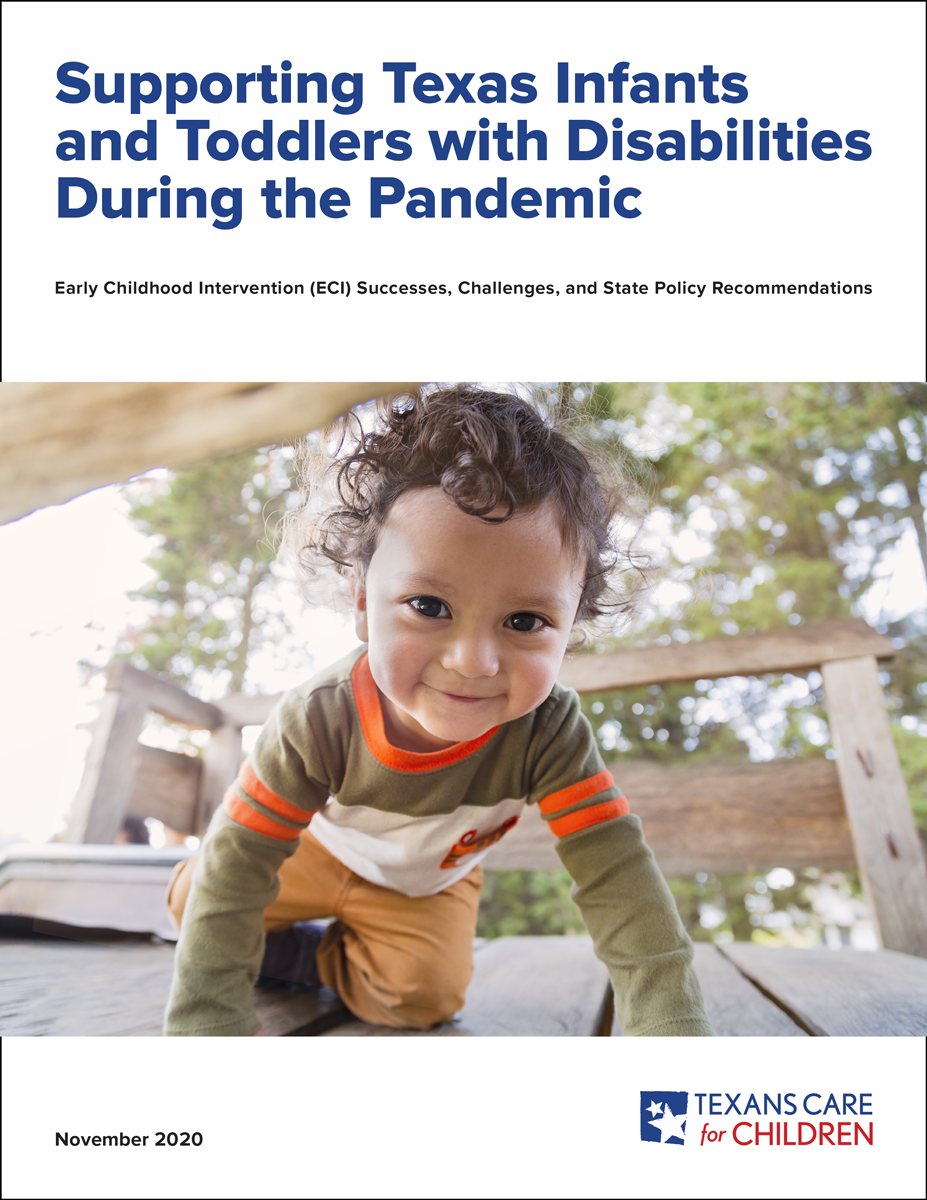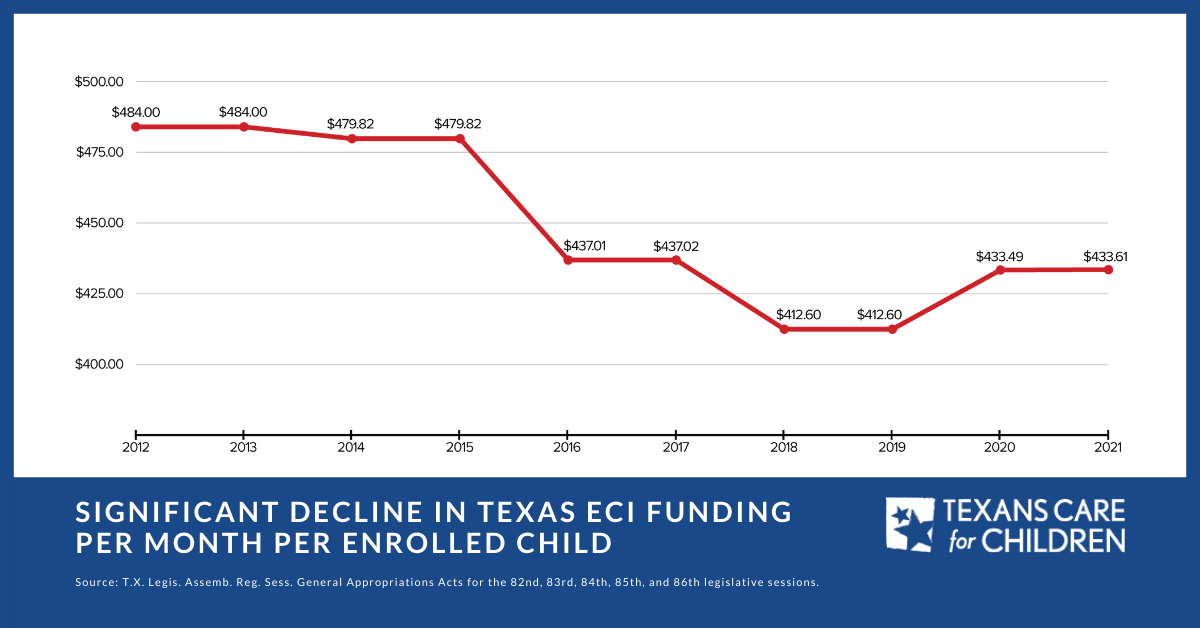
Austin – A new report shows that the Texas Early Childhood Intervention (ECI) program is under-enrolling infants and toddlers with disabilities and developmental delays as state funding for the program continues to lag behind previous funding levels. The report by Texans Care for Children also shows that the COVID-19 pandemic has created new costs and challenges for community organizations that provide ECI services, even as ECI providers have successfully transitioned to telehealth during the pandemic. The report comes weeks after federal officials found that Texas leaders are falling short of their legal obligation to offer ECI services to all children under age three with disabilities and delays.
“To support infants and toddlers with Down syndrome, autism, and speech delays during the pandemic and beyond, Texas legislators need to fully fund Early Childhood Intervention during the upcoming legislative session,” said Katie Mitten, Health Policy Associate for Texans Care for Children. “While Texas funding for ECI still lags behind where we were a few years ago, the good news is that the Legislature started to restore ECI funding last session and can finish the job in the next session.”
The report draws on data obtained from the Health and Human Services Commission (HHSC), a survey of community organizations that contract with the state to provide ECI services, and other sources.
The research found that Texas ECI enrollment is low for children of all backgrounds and disproportionately low for Black children. In 2018, Texas ECI served 2.34 percent of children under age three, compared to the national average of 3.74 percent, ranking the state 46th in the nation. Black children represented only 8 percent of the children enrolled in ECI services but they were 12 percent of children under age three in Texas.

The report found that funding provided to ECI programs by the Legislature for FY 2020 and FY 2021 equates to $433 per month for each enrolled child. By comparison, between FY 2012 and FY 2015, per-child monthly funding ranged from $484 to $479 — meaning funding has declined 10 percent since that time. ECI providers now face additional pandemic-related costs, such as technology for telehealth and personal protective equipment.
The report also found that outreach, screening, and referrals to ECI were already inadequate before the pandemic — largely due to state funding cuts — and have become more challenging during the pandemic as children miss doctor’s appointments and other sources of ECI referrals.
A number of recommendations are included in the report, including restoring the amount of state funding previously provided to serve each child enrolled in ECI, addressing the disproportionate under-enrollment of Black children, and reducing the children’s uninsured rate in Texas by allowing eligible children to remain enrolled in Children’s Medicaid for 12 continuous months.
“ECI is a really effective program for kids, but we need to make sure the state funding is in place so eligible kids have access to it,” said Ms. Mitten. “We look forward to working with the Legislature to make sure that little Texas kids have the support they need to communicate with their families, learn to walk, get ready to go to school, or meet other developmental goals.”



